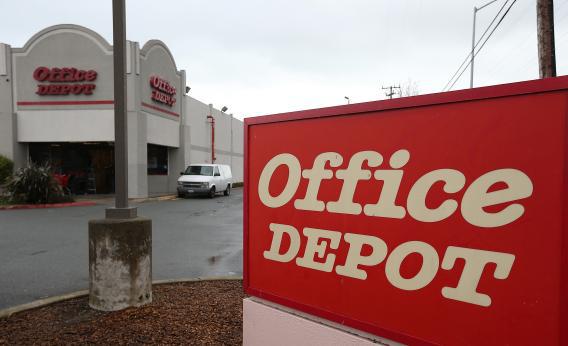Office Depot announced today that it’s finalized the details of a much-rumored acquisition of OfficeMax. Depot will be buying Max for $1.17 billion in newly issued Office Depot stock, a substantial 26 percent premium over OfficeMax’s current stock price. Fans of The Office have often heard the Dunder-Mifflin team bemoan the decline of the regional paper company at the hands of big national chains, but these days even the big chains have been suffering. The fear at Office Depot is that Staples is going to eat their lunch unless they get bigger.
Even combined, the new company is going to be about 25 percent smaller than Staples in terms of revenue. And realistically, it’s more likely to shrink that to grow.
The mandate here is to take advantage of industry consolidation to close stores and lay off workers while minimizing lost sales. Right now, the tendency has been for both firms to shutter stores. A combined company can more easily afford to close stores while still maintaining overall economies and scale and market presence.
A closely related subplot is that back in December, Jeffrey Smith’s Starboard Value bought a 13.3-percent stake in Office Depot, and immediately announced an activist campaign to shake up operations. Smith’s agenda was store closures, aggregate shift to operating smaller retail locations, and carrying fewer products. On the one hand, you can see the merger as a big push by Office Depot management to stave off Smith’s activism by presenting other shareholders with an image of dynamism and strategy. On the other hand, you can see the merger as facilitating the Smith strategy. With more stores in the overall portfolio, you can apply the Smith diagnosis of the industry’s problems on a larger scale.
The office supply industry, like the bookstore industry before it, is suffering from a particularly acute case of the End of Retail. Online shopping is bad for everyone who runs stores, but it’s particularly bad for people who run stores full of paper. The ability to shop online may change how you buy socks, but you still want socks. Digital technology actually makes you want less paper, whether that’s paper to put in the printer or paper preprinted with words, and it also makes you want to buy your paper over the Internet.
